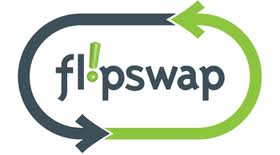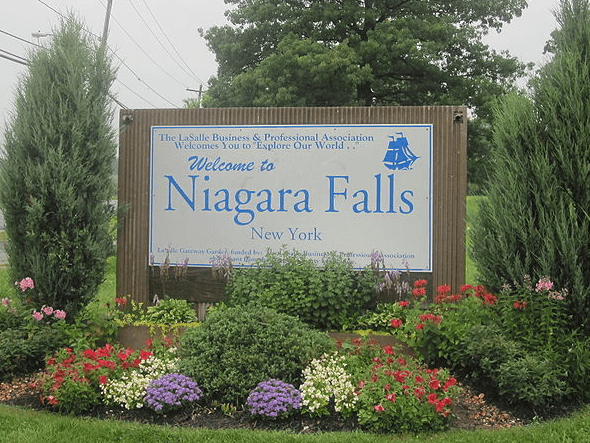[flv width=”640″ height=”500″]http://www.phillipdampier.com/video/Kabletown.flv[/flv]
Liz Lemon and Jack Donaghy greet Kabletown — an oblique reference to Comcast — in this clip from NBC’s ’30 Rock.’ (Adult Language) (1 minute)
[flv width=”640″ height=”500″]http://www.phillipdampier.com/video/Kabletown.flv[/flv]
Liz Lemon and Jack Donaghy greet Kabletown — an oblique reference to Comcast — in this clip from NBC’s ’30 Rock.’ (Adult Language) (1 minute)
 Select smartphone customers will soon be able to connect multiple devices from their smartphone – via Wi-Fi – with AT&T’s new Mobile Hotspot application. Starting Feb. 13, customers bundling the Hotspot application with the AT&T Data Pro plan will get up to 4GB of data for $45 per month.
Select smartphone customers will soon be able to connect multiple devices from their smartphone – via Wi-Fi – with AT&T’s new Mobile Hotspot application. Starting Feb. 13, customers bundling the Hotspot application with the AT&T Data Pro plan will get up to 4GB of data for $45 per month.
Customers on AT&T’s $20 tethering plan, which permits access to AT&T’s wireless network on a laptop or other device through your phone, will get an additional 2GB of use at no charge to match the Mobile Hotspot offer.
AT&T Mobile Hotspot details include:
 AT&T also announced a new trade-in program:
AT&T also announced a new trade-in program:
Beginning Feb. 13, AT&T/FlipSwap’s trade-in service will launch in all AT&T stores, allowing AT&T customers to turn in old wireless phones and receive an AT&T gift card reflective of the device’s trade-in value and condition, as determined by FlipSwap. Customers can use the card in AT&T stores towards the purchase of new phones, equipment, or services. All phones – regardless of manufacturer or date purchased – will be considered for trade-in.
AT&T also offers customers the option to donate old devices – or proceeds from their trade-in – to members of the military through the Cell Phones for Soldiers program. Donation boxes are set up across AT&T retail locations.
Kyle, an AT&T customer and Stop the Cap! reader noticed the changes, and wasn’t very impressed.
“They matched Verizon’s pricing, nothing more — nothing less,” Kyle writes. “What would be useful is free tethering tied to our existing data plan; there is no justification for charging extra just for the right to use your existing data plan on another device.”
The date has arrived. Existing Verizon Wireless customers are now invited to “pre-order” The Precious.
Strangely, Verizon’s website gave more prominence to the phone before they could actually accept orders for it:
Verizon wants you to think of its Apple iPhone as a fine wine, offering “exclusive” access to “our reserved quantity, while they last.”
When they’re gone, they’re… will be more on the way. The Keebler Elves at Apple will certainly make more, plenty more, to sustain pent up demand for the phone on Verizon’s network.
AT&T is doing all it can to keep customers from switching. In addition to earlier efforts to lock customers into those two-year contracts with early termination fees, lots of AT&T customers are also getting e-mail from the company reminding them AT&T is the only network that lets you talk and surf the web at the same time (with your iPhone). They ignore T-Mobile, which also accepts unlocked iPhones and works the same way. AT&T and T-Mobile utilize GSM technology while Verizon (and Sprint… and Cricket… and MetroPCS) use CDMA. The latter technology, at least in its current implementation, allows users do one or the other, not both.
That probably won’t keep too many disenchanted AT&T customers from leaving, but some other factors might:
Verizon will allow new iPhone customers access to its “unlimited data” add-on plan “for a limited time.” Verizon plans to join AT&T in officially ending the unlimited option sometime this year, but exact pricing and plan details remain unavailable.
Customers can begin booking their departure from AT&T Feb. 9, when Verizon begins taking orders from new customers and those intending to drop their current carrier.
You used 50 kilobytes of data visiting a web page on your iPhone, but AT&T claims the site actually consumed six times that — 300 kilobytes, for which the carrier overcharged you for access.
A major point of contention for consumers facing Internet Overcharging schemes is that the same company with a vested interest in maximizing revenue from such schemes also administers the meter that measures how much you used. There is no oversight or independent verification.
In a lawsuit filed this week, AT&T Mobility faces accusations it is systematically overcharging iPad and iPhone users for data services many never used.
Patrick Hendricks claims AT&T’s Internet Overcharging “was discovered by an independent consulting firm retained by plaintiff’s counsel, which conducted a two-month study of AT&T’s billing practices for data usage, and found that AT&T systematically overstate web server traffic by 7 percent to 14 percent, and in some instances by over 300 percent.”
The lawsuit compares the company’s billing system to a gas pump that charges for a full gallon when it only dispenses nine-tenths into your tank.
 Hendricks’ suit also claims the same independent testing firm confirmed AT&T charges for data usage even when phones and iPads were disabled for data sessions, push notifications, location services, and other data features. After 10 days, the firm found AT&T had billed 35 data transactions totaling 2,292 kilobytes of usage, akin to being billed for gas when you never even pulled into the station.
Hendricks’ suit also claims the same independent testing firm confirmed AT&T charges for data usage even when phones and iPads were disabled for data sessions, push notifications, location services, and other data features. After 10 days, the firm found AT&T had billed 35 data transactions totaling 2,292 kilobytes of usage, akin to being billed for gas when you never even pulled into the station.
The complaint admits the individual overcharges are relatively small for most consumers, but collectively they earn massive profits for AT&T.
“AT&T has 92.8 million customers. In the fourth quarter of 2010, AT&T reported its wireless data revenues increased $1.1 billion, or 27.4 percent, from the year-earlier quarter, to $4.9 billion,” the suit claims. “A significant portion of those data revenues were inflated by AT&T’s rigged billing system for data transactions.”
The lawsuit is seeking class action status and refunds of alleged overcharging for impacted customers.
The firm handling the case, Bursor & Fisher, has tangled with cell phone providers before, winning cases against Verizon, Sprint and T-Mobile. The firm is also exploring a lawsuit against Sprint on behalf of Evo owners who paid a $10 surcharge on top of an “unlimited” data plan.
Despite claims from Canadian Internet Service Providers that Internet Overcharging schemes like “usage-based billing” are about pricing fairness, paying for what one uses, and keeping prices down, comparing broadband prices across the west and east sides of the Niagara River tell a very different story.
We went shopping for the lowest possible prices for standalone broadband service from two cable companies serving the Niagara Falls area, on both sides of the border.
Here is what we found (prices roughly equivalent in CAD/USD at today’s exchange rate of $1US = $0.99CAD):

Road Runner Standard Service: 10/1Mbps
No Usage Limit
No Overlimit Fee
No Modem Rental Fee
No Contract Commitment

 Niagara Falls, Ontario — Rogers Communications
Niagara Falls, Ontario — Rogers Communications Rogers Express Service: 10Mbps/512kbps
Rogers Express Service: 10Mbps/512kbps
60GB Monthly Limit with $2/GB Overlimit Fee
$14.95 Installation Fee
One Year Contract Required
(Price above reflects a one-year promotion that includes the monthly Home Gateway Rental ($4.50 value) for one year, $5.50 per month thereafter, effective 3/2011)